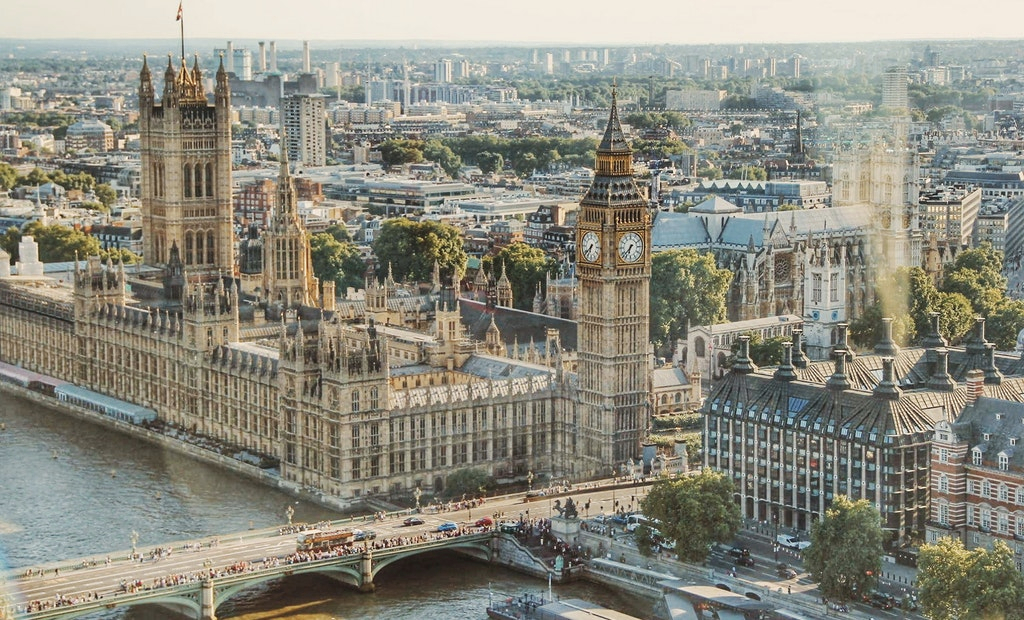Seven-way debate: What can we make of UK’s possible leaders?

With the 2015 general election just five weeks away, the seven leading parties are in full campaign mode. They went head-to-head in a live debate on ITV, feuding over topics such as NHS, education, cuts and immigration on Thursday.
An estimated audience of 7.7 million tuned in for the debate, as the PM David Cameron and opposition leader Ed Miliband, the most prominent figures of the debate, threw disparaging slurs at each other with little substance, to elucidate to us their differences.
Miliband accused Cameron of “failing” the British people over the NHS. However, the PM asserted that after he took over from Labour “the biggest decision Conservatives made was to protect the NHS.”
Experts deem it is a false statement. Before the 2010 election, Cameron had promised that the NHS would be safe in his hands; knowing very well that it is a source of public reassurance envied by many around the world he went on to launch a £20 billion programme of cuts, proceeding to deliberately dismantle the NHS from within and sell it off to the private sector.
Lib Dem leader Nick Clegg, at a few points in the debate, stood out by launching an onslaught against both Cameron and Miliband. Clegg thrust into the debate by turning on Cameron, his coalition partner, asking him why the Conservatives “are not going to ask the richest in society to make a single extra penny of contribution to balancing the books through the tax system.” Clegg was unabating as he jumped on Miliband, next, pointedly urging him to say “sorry for crashing the British economy.”
The public also witnessed the noisiest participant, Nigel Farage, leader of the UKIP, stir up controversy with his piously bigoted ideas on immigration and health care, as he lashed out at “health tourists” with HIV. Farage condemned sick people for taking advantage of the NHS to receive treatment that costs £25,000 per year.
Farage received negative reactions not only from the audience but also from the leader of Plaid Cymru, Leanne Wood: “This kind of scaremongering is dangerous; it divides communities and it creates stigma to people who are ill and I think you should be ashamed of yourself.”
Green Party’s Natalie Bennett, seemingly nervous throughout the debate, showed that the Green’s are the only representatives of the people with a powerful anti-austerity message, insisting that there is an “alternative” to make working class people pay for the reckless mistakes of the bankers.
She also spoke out against the privatisation of the NHS and said: “Profit motive should have no place in healthcare.” The Green’s have very little support; there’s virtually no chance of Ms Bennett winning this election.
The intentions of the Green’s were further exhibited by a member of the audience, Victoria Prosser, a 33-year-old health worker and mother. She interrupted the PM and shouted: “I have to speak out.” She heckled Cameron about the shameful number of homeless people who have served in the armed forces, later stating that she wanted people to question “the 1% at the top” who are not serving the country’s interests. Ms Prosser says that she attended the debate “with an open mind” but “now I feel that a lot of it was prepared, in a way that they could make themselves look good.”
The debate was pantomime and monotonous, offering nothing new – no alternative approaches to solving the housing crisis, mending the NHS and other public services, or in any way addressing climate change.
We’re constantly told that in a republic we have a choice to elect the leader who will best represent us. Unfortunately, it usually comes down to the two parties with the most private funding and media support, in this case, Conservative or Labour.
So who should one vote for and does your vote even matter? Election after election, it is becoming undeniably clear that contemporary politics, infected by the capitalist ideology of turning a profit, is not the way to go about making changes in society.
Ernest Samuolis























Facebook
Twitter
Instagram
YouTube
RSS